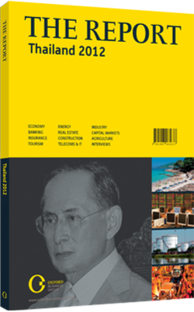OBG talks to MR Pongsvas Svasti, Minister of Industry

Interview: MR Pongsvas Svasti
How has the Ministry of Industry (MoI) aided the recovery of industry following the floods in 2011?
PONGSVAS SVASTI: Foreign direct investment is very important for Thailand, so our main priority was to reassure investors and get the affected industries back on their feet. We offered assistance with draining the water, provided engineers to support rehabilitation, applied a 0% tariff on new equipment imports and allowed foreign companies to bring in more staff from their home countries to help them rebuild and restart.
Our second objective has been to use Board of Investment (BOI) incentives to keep these industries in Thailand. We have looked at increasing tax incentives and the BOI has extended measures for industrial estates. We have also talked with some of the most important investor countries, with our prime minister travelling to India, South Korea, Japan and China to reassure businessmen about Thailand. The government is pushing through BT350bn ($11.2bn) in infrastructure and water management projects, and these investments will give Thailand advantages over other countries in the region.
Are there any capacity-building measures in place to promote Thai firms expanding overseas?
PONGSVAS: There are roughly 3m small and medium-sized enterprises in Thailand, of which around 20,000 are medium companies and 2.98m are small: these are our key targets. The medium-sized companies have strong potential to invest and we will work on facilitating their access to financing, a key to their future growth. The MoI is focusing on developing industrial estates on border areas to access labour from neighbouring countries. We are developing one in Chiang Khong, along the border with Laos, one in Nong Khai and one in Udon Thani. We are also developing two industrial estates along the border with Myanmar – one near Kanchanaburi and one in Mae Sot. These estates can be useful for medium-sized industries to mitigate labour costs. Some may want to invest in neighbouring countries and we are working on revising the BOI incentives for both inward and outward investment. These new measures should be finalised by 2013.
How will the MoI make the most of the opportunities presented by the implementation of the ASEAN Economic Community (AEC) in 2015?
PONGSVAS: The free flow of skilled labour, goods and capital in the AEC means smaller companies are the key target for our adjustment efforts. We are working to improve their standards and productivity, and help them get access to finance, which remains difficult. We are also running seminars to help smaller firms establish a roadmap to the AEC – looking at their situation and opportunities for growth. We launched a scheme in 2012 in Bangkok for smaller companies to prepare their roadmaps. Next, we will establish programmes to address their weaknesses and help them export to neighbouring countries. We see strong potential in value-added production in textiles and agribusiness, in particular. During 2013, for instance, the budget for the food industry will be larger. As long as we can keep key supply chains for industries like automotives, electronics, electrical appliances and agri-processing in Thailand, we will remain an industrial centre for the region.
What programmes are in place to foster innovation?
PONGSVAS: In partnership with the Ministry of Science & Technology, we are looking at what type of research and development (R&D) we should focus on, and have signed a memorandum of understanding to increase R&D for the One District One Product programme.
In addition, we established community standards bodies for each of the 77 provinces. These will work to raise standards and facilitate commercialisation of community-level innovation. We have also been working with the Ministry of Education on a programme called One Company One Degree, through which students can advance their learning “on the job”, through internships and placements. The pilot project launched 10 vocational courses in partnership with 10 businesses.
You have reached the limit of premium articles you can view for free.
Choose from the options below to purchase print or digital editions of our Reports. You can also purchase a website subscription giving you unlimited access to all of our Reports online for 12 months.
If you have already purchased this Report or have a website subscription, please login to continue.

